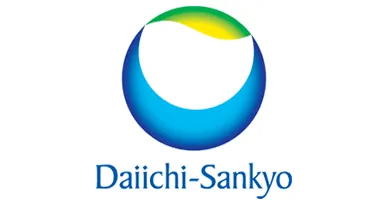
ENHERTU® Demonstrates Significant Superiority Over T-DM1 in DESTINY-Breast05 Phase 3 Trial for High-Risk HER2 Positive Early Breast Cancer Patients
Positive topline results from the planned interim analysis of the DESTINY-Breast05 phase 3 clinical trial have reinforced the potential of ENHERTU® (trastuzumab deruxtecan) as a transformative treatment in the early breast cancer setting. The study found that ENHERTU delivered a highly statistically significant and clinically meaningful improvement in invasive disease-free survival (IDFS) compared with trastuzumab emtansine (T-DM1) in patients with HER2 positive early breast cancer who had residual invasive disease in the breast or axillary lymph nodes after neoadjuvant therapy and were considered at high risk of recurrence.
This milestone represents the second major phase 3 success for ENHERTU in early breast cancer. Earlier in 2025, the DESTINY-Breast11 phase 3 trial showed positive results for ENHERTU in the neoadjuvant setting, bolstering its role as a potential next-generation standard of care for HER2 positive patients at risk of disease progression.
While the current interim analysis focused on IDFS, overall survival (OS) data remain immature. OS will be assessed in future analyses as the trial continues to follow patients over time.
ENHERTU: A Next-Generation Antibody-Drug Conjugate
ENHERTU is a HER2-directed antibody-drug conjugate (ADC), specifically engineered with Daiichi Sankyo’s proprietary DXd technology. The therapy links trastuzumab, a HER2-targeting monoclonal antibody, to a potent topoisomerase I inhibitor payload via a stable, tumor-selective cleavable linker. This design allows targeted delivery of chemotherapy to HER2 expressing cancer cells, minimizing systemic exposure and improving anti-tumor activity.
The ADC was originally discovered by Daiichi Sankyo and is being jointly developed and commercialized with AstraZeneca under a landmark global collaboration. The partnership reflects both companies’ commitment to advancing innovative therapies that can address unmet needs across multiple stages of breast cancer treatment.
Addressing a Critical Gap in HER2 Positive Early Breast Cancer
Despite the considerable progress made in the treatment of HER2 positive breast cancer, challenges persist in the early-stage disease setting. Approximately half of all patients with HER2 positive early breast cancer have residual invasive disease after receiving neoadjuvant therapy.1-7 This subgroup is at a heightened risk of disease recurrence, often facing progression to metastatic breast cancer, which remains incurable in most cases.
Even when patients receive additional therapies in the post-neoadjuvant setting, a substantial proportion eventually relapse.8,9 This underscores the urgent need for new therapeutic strategies capable of preventing recurrence and extending long-term survival.10,11
The findings from DESTINY-Breast05 provide compelling evidence that ENHERTU could help close this gap by significantly extending the period patients remain free from invasive disease.
Expert Perspectives on the Trial Results
Dr. Ken Takeshita, Global Head of R&D at Daiichi Sankyo, emphasized the importance of optimizing treatment strategies for patients with residual disease:
In patients with early breast cancer with residual disease following neoadjuvant treatment, it is critical to optimize treatment as this represents the last opportunity to prevent progression to metastatic disease. The results of DESTINY-Breast05 demonstrate that treatment with ENHERTU following surgery increases the length of time patients are able to live free of invasive disease compared to the existing standard of care, potentially offering patients with HER2 positive early breast cancer a new treatment approach in this curative-intent setting.”
From AstraZeneca’s perspective, Dr. Susan Galbraith, Executive Vice President of Oncology Hematology R&D, highlighted the groundbreaking nature of the trial:
This landmark trial is the first to directly compare ENHERTU and T-DM1 in early breast cancer and the results clearly show that ENHERTU delivers superior outcomes, indicating that it may be a better option for patients with high risk HER2 positive early breast cancer in the post-neoadjuvant setting. These results from DESTINY-Breast05, coupled with DESTINY-Breast11, underscore our commitment to moving ENHERTU into early-stage HER2 positive breast cancer where patients can achieve sustained long-term outcomes, increasing the opportunity for cure.”
Together, these perspectives reinforce the view that ENHERTU could redefine the treatment paradigm in the curative-intent early breast cancer setting.
Safety Profile Remains Consistent
Safety remains a critical consideration in evaluating novel therapies. In DESTINY-Breast05, the safety profile of ENHERTU was consistent with prior clinical experience. Importantly, no new safety signals were identified, affirming the manageable risk-benefit profile of the ADC in this patient population.
This consistency strengthens confidence that ENHERTU can be safely administered in the early-stage setting, where long-term tolerability is especially vital.
Data to Be Showcased at ESMO 2025
The detailed findings from DESTINY-Breast05 will be presented during the Presidential Symposium I at the 2025 European Society for Medical Oncology (ESMO) Congress, scheduled for Saturday, October 18. The presentation will feature Abstract #LBA1, highlighting the topline results in depth, alongside data from the DESTINY-Breast11 trial (Abstract #291O).

Given the scale and clinical importance of the trial, the DESTINY-Breast05 data are also being shared with global regulatory authorities, laying the foundation for potential submissions that could expand ENHERTU’s approved indications in the early breast cancer setting.
A Global Collaborative Effort
The DESTINY-Breast05 trial was conducted in collaboration with several leading international research groups, including:
- National Surgical Adjuvant Breast and Bowel Project Foundation (NSABP)
- German Breast Group (GBG)
- Arbeitsgemeinschaft Gynäkologische Onkologie (AGO-B)
- SOLTI Breast Cancer Research Group
This multinational collaboration underscores the global commitment to advancing breast cancer research and ensuring that promising therapies are rigorously tested in diverse patient populations.
Looking Ahead: The Expanding Role of ENHERTU
With strong evidence emerging from both DESTINY-Breast05 and DESTINY-Breast11, ENHERTU is positioned to play an increasingly central role in early HER2 positive breast cancer treatment. Its demonstrated superiority over T-DM1—a long-standing standard in the post-neoadjuvant setting—suggests that ENHERTU could soon become the preferred treatment option for high-risk patients.
If approved in this indication, ENHERTU would not only address the immediate risk of recurrence but also significantly expand its footprint beyond the metastatic setting, where it has already transformed outcomes for patients with advanced disease.
The oncology community will be watching closely for further updates on overall survival outcomes, as these data will provide critical insights into the long-term benefits of ENHERTU and its potential to improve cure rates in early breast cancer.
The positive results from DESTINY-Breast05 mark a pivotal moment in the evolution of breast cancer treatment. By delivering statistically significant and clinically meaningful improvements in invasive disease-free survival, ENHERTU demonstrates the potential to offer patients with high-risk HER2 positive early breast cancer a new and more effective post-neoadjuvant therapy option.
Together with its growing body of clinical evidence, including the recent success of DESTINY-Breast11, ENHERTU is rapidly advancing toward becoming a cornerstone therapy across multiple stages of HER2 positive breast cancer. The trial’s results highlight not only the innovation behind antibody-drug conjugates but also the power of global collaboration between industry leaders, academic researchers, and oncology groups in transforming patient care.
As data mature and regulatory discussions advance, ENHERTU may soon be poised to redefine the standard of care in early HER2 positive breast cancer—bringing new hope to patients at the highest risk of disease recurrence and reshaping the future of curative-intent breast cancer therapy.





